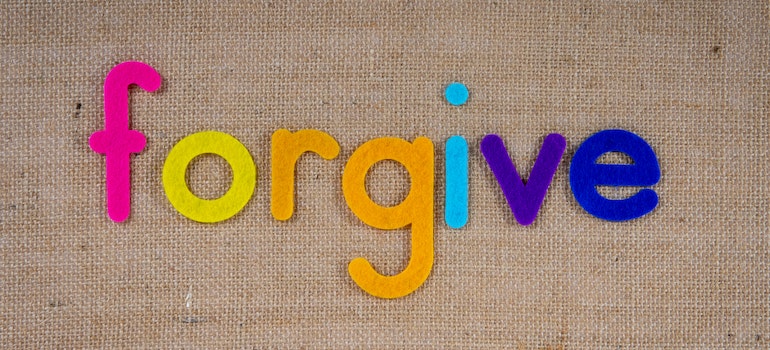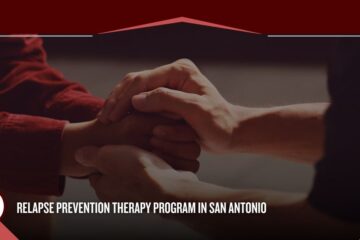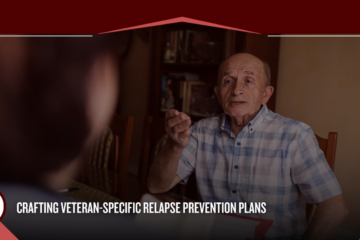Embarking on the journey of drug or alcohol rehab in San Antonio, particularly at a reputable drug and alcohol detox center Texas provides, is a courageous step towards reclaiming your life and achieving lasting sobriety. Along this challenging path, self-forgiveness plays a vital role in your recovery. It involves acknowledging past mistakes, making amends, and letting go of guilt and shame to promote emotional healing and growth. By seeking professional support, you can receive guidance and therapeutic interventions specifically tailored to your needs, helping you navigate the process of self-forgiveness during drug or alcohol rehab in San Antonio and fostering a strong foundation for your journey to long-term sobriety.
Self-forgiveness vs. Seeking Forgiveness from Others
Self-forgiveness and seeking forgiveness from others are two distinct paths on the journey of personal healing and growth. Both processes involve acknowledging past actions or choices that have caused harm or regret, but they differ in their focus and outcomes. While seeking absolution from others can be valuable and contribute to repairing relationships, self-forgiveness is a deeply personal and transformative process that centers around self-acceptance, compassion, and finding inner peace.

Forgiveness from Others
When we ask for forgiveness from others, we recognize the impact of our actions on those around us. This act requires humility, vulnerability, and a genuine desire to make amends. Seeking forgiveness is an interpersonal process that involves open communication, empathy, and understanding. It can lead to healing fractured relationships, restoring trust, and fostering reconciliation. By asking for pardon, we demonstrate accountability and a willingness to take responsibility for our actions.
It is important to note that forgiveness is a complex and individual journey, and in some cases, it may be necessary to seek additional support, such as PTSD treatment for veterans Texas facilitates or any other appropriate form of professional help to address the deeper emotional wounds and traumas that may have contributed to the actions in question.
Forgiving Ourselves
Self-forgiveness goes beyond seeking validation or absolution from others. It is an internal journey that begins with self-reflection, introspection, and self-compassion. When we engage in self-forgiveness, we confront the pain, shame, and guilt associated with our past actions or choices. Instead of dwelling on self-condemnation, we choose to extend understanding and compassion to ourselves, acknowledging that we are fallible human beings capable of growth and change.
Self-forgiveness during drug or alcohol rehab in San Antonio is a process of releasing self-judgment and embracing our inherent worthiness. It requires us to examine our intentions, beliefs, and circumstances that contributed to our actions. Through self-reflection, we gain a deeper understanding of ourselves, our values, and our motivations. This process helps us recognize the factors that influence our behavior and allows us to learn from our mistakes, fostering personal growth and resilience.

Moreover, it empowers us to break free from the cycle of guilt and shame. By forgiving ourselves, we liberate our energy and focus from past mistakes, enabling us to move forward with a sense of inner peace and self-acceptance. This internal healing positively impacts our mental and emotional well-being, fostering self-esteem and nurturing a healthier relationship with ourselves.
While seeking forgiveness from others is important in repairing relationships and seeking reconciliation, it is not always possible or within our control. Others may not be ready or willing to grant forgiveness, and we cannot force or expect them to do so. In such cases, self-forgiveness becomes even more vital as it allows us to detach our self-worth from the external validation of others. It enables us to find closure and resolution within ourselves, independent of the responses or actions of others.
The Positive Impact of Self-Forgiveness on Overall Well-being
Self-forgiveness during drug or alcohol rehab in San Antonio profoundly impacts your overall well-being during the recovery process. By letting go of self-blame and guilt, you create space for healing, growth, and improved mental health. This is especially helpful while undergoing a medical detox San Antonio has to offer. It helps reduce anxiety, stress, and depression, allowing you to focus on building a healthier and more fulfilling future.
Moreover, it promotes a sense of self-compassion and understanding, fostering a positive relationship with oneself. When you forgive yourself, you acknowledge that everyone makes mistakes and that personal growth comes from learning and evolving. This shift in mindset cultivates resilience and enhances self-esteem, enabling you to navigate life’s challenges with greater confidence and optimism. Ultimately, embracing self-forgiveness empowers you to live a more balanced and joyful life, promoting overall well-being in all aspects of your existence.

The Hindrance of Unresolved Guilt and Shame
Those joining an alcohol detox center Texas locals recommend know that unresolved guilt and shame can be significant roadblocks on the path to recovery. Carrying the weight of past mistakes can lead to self-sabotage, low self-esteem, and relapse. Self-forgiveness offers a transformative opportunity to release these burdens, allowing you to move forward with greater clarity and resilience. Individuals can address the underlying emotional pain that fuels self-destructive behaviors by acknowledging and confronting unresolved guilt and shame. This process of self-reflection and acceptance can pave the way for healing, personal growth, and restoring healthy relationships with oneself and others.
The Benefits of Self-Forgiveness in Promoting Emotional Healing and Growth
- Emotional Healing: It enables you to confront and process painful emotions associated with past actions, promoting healing and closure.
- Self-Acceptance: By forgiving yourself, you acknowledge that you are worthy of love and compassion, fostering a healthier self-image.
- Increased Motivation: Letting go of self-condemnation motivates you to make positive changes and embrace a more fulfilling life in recovery.
- Empowered Decision-Making: It empowers you to make choices aligned with your values and long-term goals.
- Stronger Relationships: By cultivating self-forgiveness, you enhance your capacity for empathy, trust, and meaningful connections with others.

The Importance of Self-Care During the Recovery Process
Self-care is integral to self-forgiveness and recovery while staying at a drug detox center Texas provides for those in need. It involves consciously nurturing your physical, emotional, and mental well-being. Engaging in self-care practices helps reduce stress, promotes self-compassion, and provides the necessary support for your healing journey. It empowers you to regain a sense of control over your life. By prioritizing self-care, you can establish healthy boundaries, make positive choices, and build resilience in the face of challenges. It serves as a vital tool for maintaining stability, fostering personal growth, and, ultimately, achieving long-term recovery goals.
Self-Care Practices Supporting Self-Forgiveness During Drug or Alcohol Rehab in San Antonio
There are many ways to practice self-care and create an environment that will allow you to forgive yourself and remain on the path of healing. Some of the areas to focus on include:
- Physical Well-being: Prioritize regular exercise, balanced nutrition, and sufficient sleep to boost your energy levels and overall health.
- Emotional Well-being: Seek therapy or counseling to address underlying emotional challenges and develop healthy coping mechanisms.
- Mindfulness and Meditation: Practice mindfulness and meditation to cultivate self-awareness, manage stress, and promote emotional balance.
- Creative Outlets: Explore creative activities such as writing, painting, or music, as they can serve as therapeutic tools for self-expression and healing.
- Supportive Social Circle: Surround yourself with positive, understanding individuals who uplift and support your recovery journey.

The Stages of Self Forgiveness
The 4-stage framework is a practical roadmap for practicing self-forgiveness. This framework originated from various psychological and self-help approaches that emphasize the importance of self-compassion and personal growth. Following these steps, you can gradually let go of self-blame, heal emotional wounds, and foster personal growth.
The stages of self-forgiveness are:
- Responsibility
- Acceptance
- Reflection
- Release
Let’s explore the origin and meaning of each of these steps and practical steps for implementing them in your daily life.
Recognizing Your Responsibility
The first step in the framework is recognizing mistakes, shortcomings, or negative emotions associated with a particular event or situation. This step involves acknowledging the impact of your actions or thoughts on yourself and potentially others. Recognizing allows you to confront the truth about what has happened and take responsibility for it. Ways to implement this step can be:
- Journaling: Write down the details of the situation, your actions, and the emotions you experienced. This helps bring clarity and objectivity to the recognition process.
- Ask for feedback: Talk to a trusted friend, therapist, or mentor about the situation. Their perspective can provide valuable insights and help you recognize your role more effectively.
- Mindfulness practice: Engage in mindfulness meditation or deep breathing exercises to develop awareness of your thoughts, emotions, and actions. This can help you recognize patterns or triggers that contributed to the situation.

Experiencing Remorse and Acceptance
Once you have recognized your actions and accepted reality, you will go to the second phase of self-forgiveness: remorse. You will experience feelings of guilt, shame, or anger. Don’t push these feelings away. Embrace them. They are a normal part of your journey to forgiveness.
After it comes acceptance. You accept the reality without judgment or self-condemnation. Acceptance involves acknowledging that everyone makes mistakes and that it is a part of being human. It requires cultivating self-compassion and understanding that forgiveness is a process that starts from within. Accepting your flaws and imperfections can create a foundation for personal growth and healing. Here are some ways to apply this step:
- Practice self-compassion: Treat yourself with kindness and understanding. Remember that making mistakes is a natural part of being human, and everyone has flaws and imperfections.
- Challenge self-judgment: Whenever self-blame or self-condemnation arises, consciously challenge those thoughts. Replace negative self-talk with compassionate and realistic statements.
- Write a forgiveness letter to yourself: In a letter, forgive yourself for your actions or mistakes. Acknowledge your humanity, express understanding, and offer self-compassion. Read the letter aloud or keep it as a reminder of your self-forgiveness journey.
Reflecting on the Motives Behind Your Actions
The third step is reflection. It involves examining the underlying reasons and motivations behind your actions or thoughts. It encourages you to explore the context, beliefs, emotions, and experiences contributing to the situation. By reflecting on your behavior, you can gain insight into yourself, develop empathy, and learn from your past actions. This self-reflection can also be applied to seek out professional guidance or therapy, such as in the case of addressing meth detox in Texas or the Xanax detox Texas facilities provide. Follow some suggestions on how to reflect in your daily life:
- Engage in introspection: Set aside dedicated time to reflect on the situation and your role in it. Ask yourself questions such as “What were my intentions?”, “What emotions were present?” and “How did my beliefs or past experiences influence my actions?”
- Practice active listening: Seek out differing perspectives and actively listen to others involved in the situation. This helps broaden your understanding and allows you to reflect on their experiences and viewpoints.
- Journal prompts: Use reflective prompts such as “What did I learn from this experience?”, “How can I grow from this situation?” or “What changes can I make to prevent similar actions in the future?” to guide your introspection.

Releasing the Negative Emotions
The final stage of the self-forgiveness framework is to release the negative emotions, self-blame, and resentment associated with the situation. This step involves intentionally letting go of any grudges or emotional baggage that may be holding you back. Releasing allows you to free yourself from the burden of self-blame, heal emotional wounds, and move forward with personal growth. Try the following:
- Practice forgiveness exercises: Engage in forgiveness meditations or visualization exercises where you consciously release any negative emotions or resentment towards yourself. Imagine a symbolic act of letting go or visualize yourself unburdened by the weight of self-blame.
- Create a self-care routine: Engage in activities that bring you joy, relaxation, and self-nurturing. This helps create a positive environment and reinforces the release of negative emotions.
- Look for support: Talk to a therapist, counselor, or support group to process your emotions and gain additional guidance in releasing negative feelings associated with the situation.
Steps to Practice Self-Forgiveness
Besides accepting responsibility for your actions and practicing ways to forgive yourself for them, there are several more steps you need to take to ensure you remain on the right path. They are:
- Accepting Your Past, Making Amends, and Righting Wrongs: Take responsibility for your past actions and make amends when appropriate. Seek guidance from a therapist or support group to navigate this process.
- Recognizing Your Progress: Celebrate milestones and acknowledge the progress you have made on your recovery journey. Focus on the positive changes you have implemented.
- Practicing Self-Compassion and Gratitude: Treat yourself with kindness and compassion. Cultivate gratitude for the opportunity to grow, learn, and rebuild your life.
- Learning Patience: Healing and self-forgiveness take time. Be patient with yourself and embrace the ups and downs of the recovery process. Surround yourself with understanding and supportive individuals.
Nothing happens overnight. It is of utmost importance to recognize the strides you have made and celebrate every victory, no matter how small. The best way to begin your journey to recovery is by joining a comfortable and compassionate detox center where you will receive all the help and support you need.
In case you are reluctant to join a rehab facility due to financial worries, rest assured that health insurances offer coverage for such cases. At our detox center in Texas, we accept all major health insurance providers, including:
Knowing this will take you one step closer to your ultimate recovery goals.
Practice Self-Forgiveness During Drug or Alcohol Rehab in San Antonio and Stay Sober
Self-forgiveness during drug or alcohol rehab in San Antonio is crucial to your recovery journey. By practicing self-forgiveness, you can free yourself from the weight of past mistakes, cultivate emotional healing, and foster personal growth. If you are going for a Benzo detox in Texas or any other treatment for addiction, remember to prioritize self-care and implement practical strategies that will help you stay on the path to healing in every possible way – physically, emotionally, and spiritually. Through self-forgiveness, you can build resilience, embrace self-compassion, and create a brighter future filled with hope and fulfillment.




